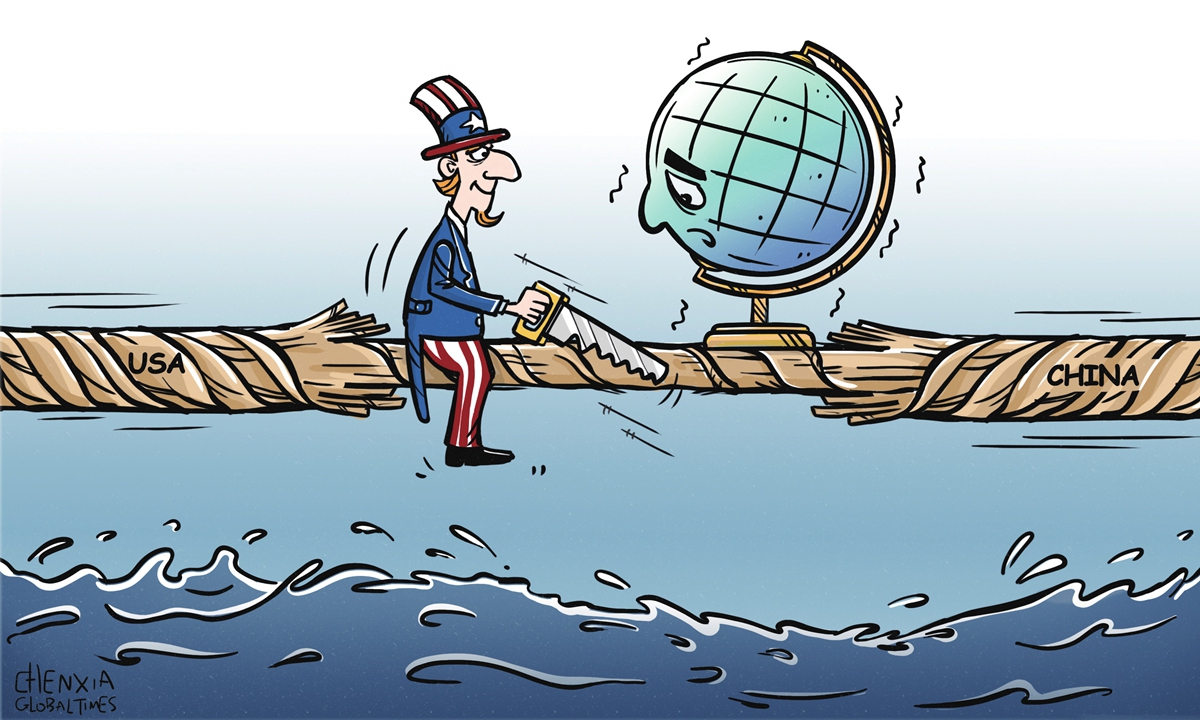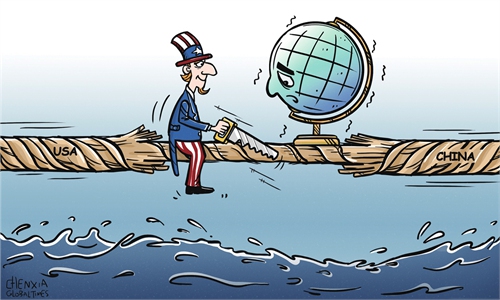
Illustration: Chen Xia/GT
When first raised by European Commission President Ursula von der Leyen, the term "de-risking" was branded as a result of an independent European mind, different from decoupling, the US version of China policy. However, it can hardly be seen as evidence of European strategic autonomy. The term was soon taken over by the US government, which has continued with its suppression of Chinese hi-tech industries, notably semiconductors. From decoupling to de-risking, there has been no change to the US moves of sanctioning Chinese companies, causing disruption in global supply chains. Despite all the trumpets about the so-called consensus on de-risking among G7 and European allies, US officials cannot even tell the difference between de-risking and decoupling.
As many pointed out, de-risk brings no essential policy shift but more ambiguity and uncertainty. If it is shaped around broadly-framed risks to national security, there is hardly any difference from "decoupling," which is exactly what the US is doing. Then it's Europe's decision whether to follow the US, leaving the concept over-generalized and sliding into de-sinicization. When Josep Borrell said that "de-risking" does not target China in any sense and the EU has no intention of hindering China's development, it's necessary to explain why "de-risking" is applied to China only, i.e. Germany's China strategy.
There is no reason to see China as a risk. When the EU is concerned about security risks from Chinese companies, it is the US that keeps bugging European leaders' phones. If reliance on one country poses risks to economic security, the US should be the biggest concern for Europe. In fact, Europe has already been bearing the spillovers of the US monetary policy.
Having pursued opening-up for over 40 years, China never sees integration with the world economy as a risk and firmly supports globalization. China has embraced European investments and businesses. Since its inception, the EU has claimed itself as one of the world's most outward-oriented economies, but now it is turning its back on the world's second-largest economy. Is this due to a malicious whisper from someone else or Europe's loss of confidence?
Be it "de-risking" or "decoupling," the logic comes from mistrust in China and deep ideological bias. This mentality left from the last century serves no one's interest. When US chip CEOs knocked at Biden's door to dissuade the US government from the China curbs, they are warning that the law of technology innovation does not allow man-made barriers. Countries outside the North Atlantic have also voiced concerns over needless cost rise and disturbances to global supply chains.
The real systemic risks come from the Cold War mindset that would split the world economy and cause parallel systems. Europe made arduous efforts last century to put down one wall and get the two worlds connected. Is it now building another? If not, it is essential to keep a clear mind and avoid taking a policy that pushes China away.
The author is an observer on international affairs. opinion@globaltimes.com.cn

